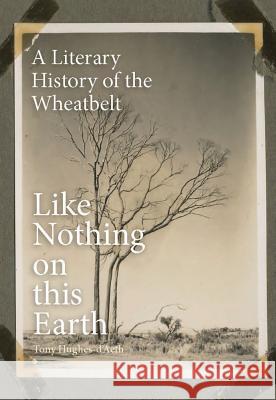Like Nothing on This Earth: A Literary History of the Wheatbelt » książka
Like Nothing on This Earth: A Literary History of the Wheatbelt
ISBN-13: 9781742589244 / Angielski / Miękka / 2017 / 608 str.
During the twentieth century, the southwestern corner of Australia was cleared for intensive agriculture. In the space of several decades, an arc from Esperance to Geraldton-an area of land larger than England-was cleared of native flora for the farming of grain and livestock. Today, satellite maps show a sharp line ringing Perth. Inside that line, tan-colored land is the most visible sign from space of human impact on the planet. Where once there was a vast mosaic of scrub and forest, there is now the Western Australian wheatbelt. Tony Hughes-d'Aeth examines the creation of the wheatbelt through its creative writing. Some of Australia's most well-known and significant writers-Albert Facey, Peter Cowan, Dorothy Hewett, Jack Davis, Elizabeth Jolley, and John Kinsella-wrote about their experience of the wheatbelt. Each gives insight into the human and environmental effects of this massive-scale agriculture. Albert Facey records the hardship and poverty of small-time selection in Australia. Dorothy Hewett makes the wheatbelt visible as an ecological tragedy. Jack Davis shows us an Aboriginal experience of the wheatbelt. Through examining these writings, Tony Hughes-d'Aeth demonstrates the deep value of literature in understanding the human experience of geographical change. Subject: Non-Fiction, Environmental Studies, Agricultural Studies, Literary Criticism]











